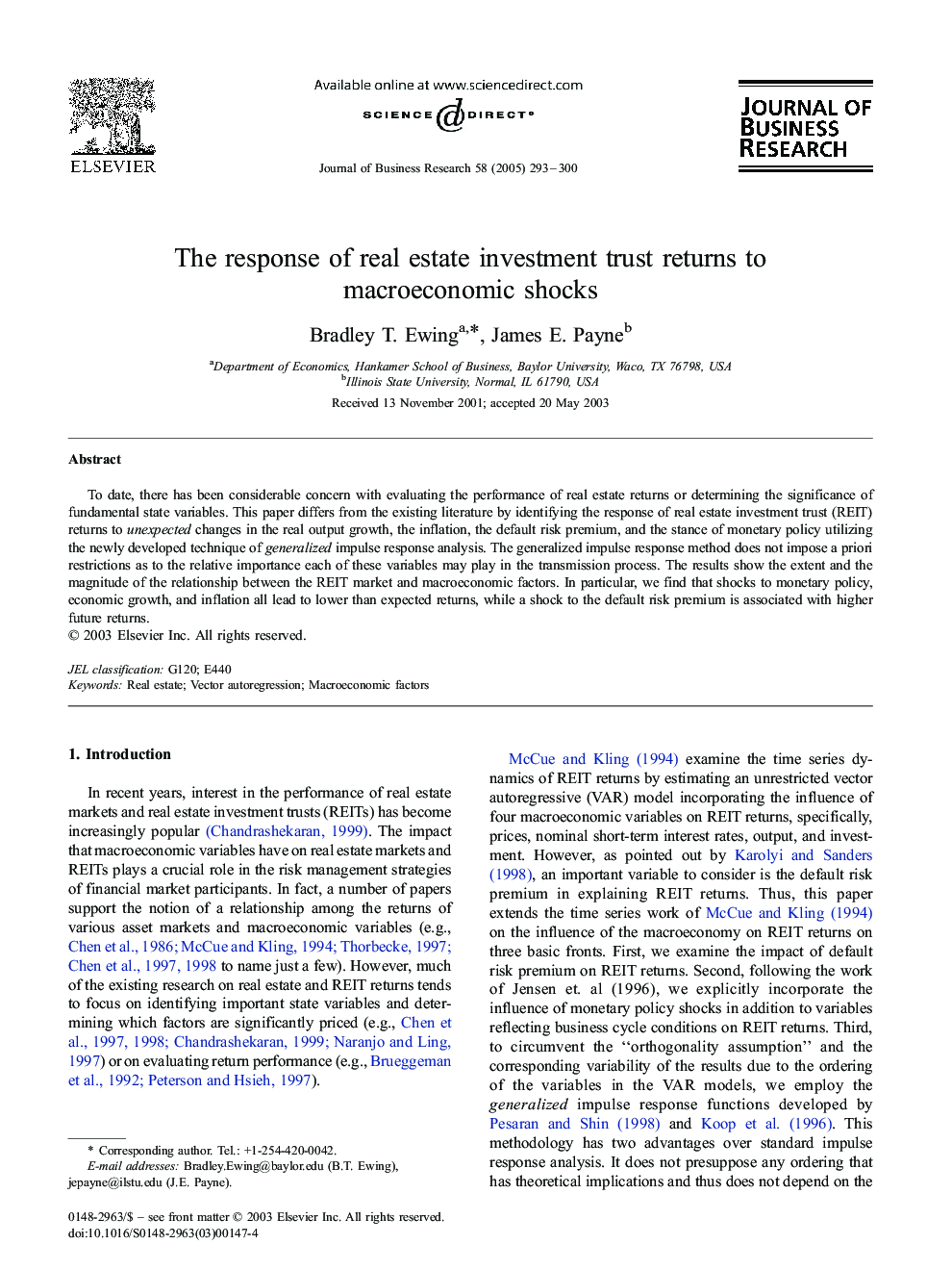| Article ID | Journal | Published Year | Pages | File Type |
|---|---|---|---|---|
| 10493657 | Journal of Business Research | 2005 | 8 Pages |
Abstract
To date, there has been considerable concern with evaluating the performance of real estate returns or determining the significance of fundamental state variables. This paper differs from the existing literature by identifying the response of real estate investment trust (REIT) returns to unexpected changes in the real output growth, the inflation, the default risk premium, and the stance of monetary policy utilizing the newly developed technique of generalized impulse response analysis. The generalized impulse response method does not impose a priori restrictions as to the relative importance each of these variables may play in the transmission process. The results show the extent and the magnitude of the relationship between the REIT market and macroeconomic factors. In particular, we find that shocks to monetary policy, economic growth, and inflation all lead to lower than expected returns, while a shock to the default risk premium is associated with higher future returns.
Related Topics
Social Sciences and Humanities
Business, Management and Accounting
Business and International Management
Authors
Bradley T. Ewing, James E. Payne,
